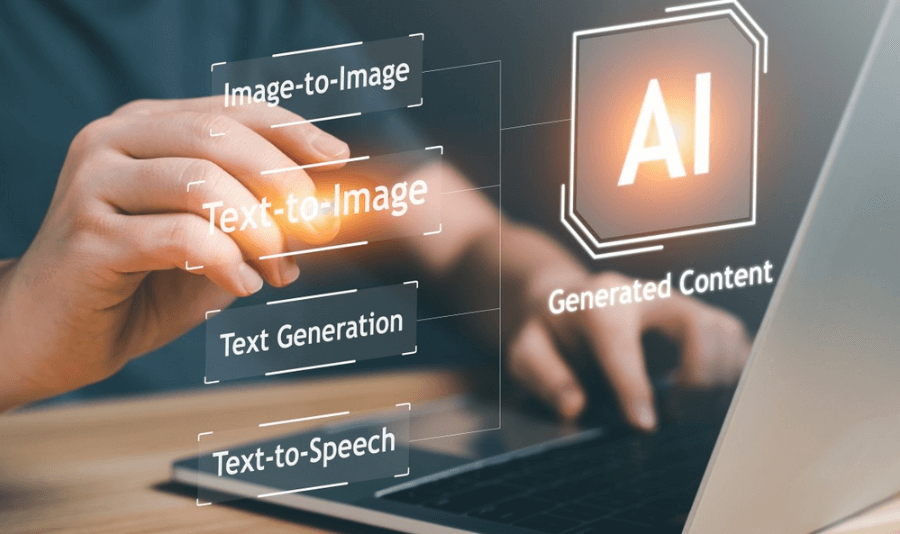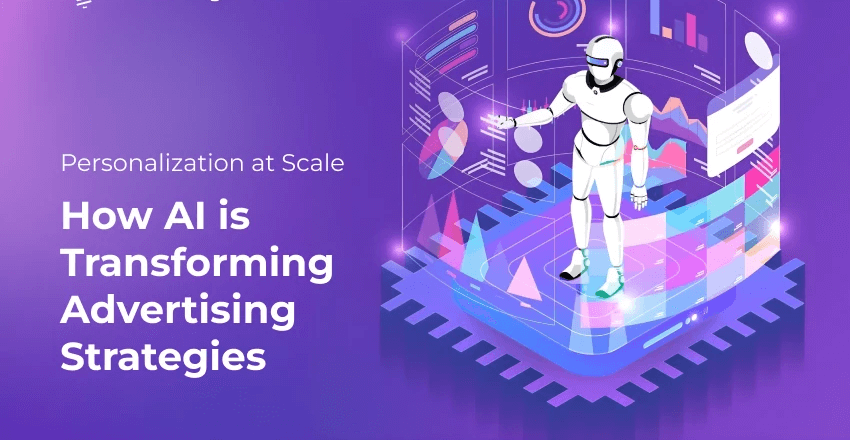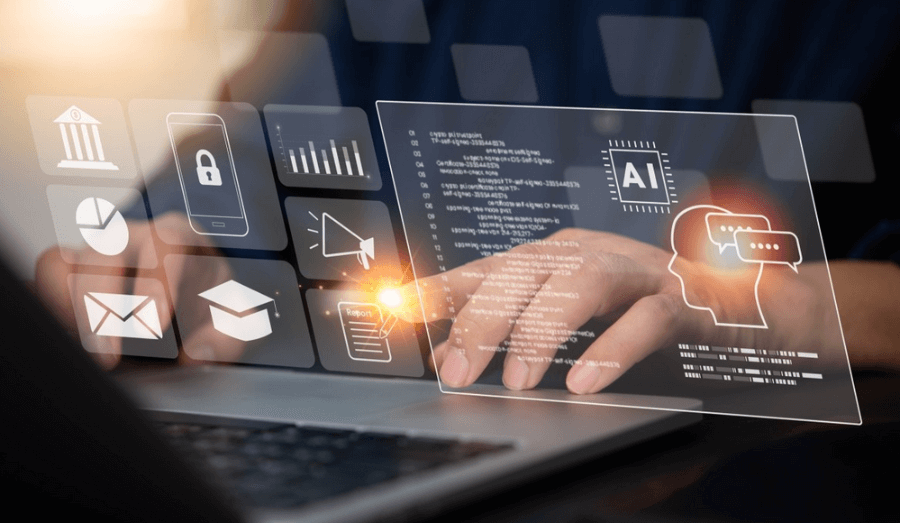📑 Table of Contents
In today’s competitive landscape, personalized marketing isn’t just an advantage—it’s essential. Customers expect brands to deliver content that resonates with their unique preferences and behaviors. However, manually personalizing text and email campaigns for hundreds or thousands of customers is daunting. That’s where AI steps in.
AI-powered personalization enables brands to scale their marketing efforts effortlessly. By analyzing vast amounts of customer data, AI can automatically deliver hyper-personalized messages to the right person at the right time. From customized emails to targeted SMS campaigns, AI helps businesses connect with customers in a personal yet scalable way.
This blog will explore how AI revolutionizes personalized marketing, making it easier for businesses to scale their text and email campaigns without sacrificing quality.
Why Personalization Matters in Marketing
Personalization has become a key driver of engagement and customer loyalty. Research shows that personalized emails achieve 29% higher open rates, and SMS messages with customized content lead to better click-through rates. Today’s consumers expect brands to know their preferences and deliver relevant content that meets their needs.
However, creating personalized campaigns for each customer can be time-consuming and resource-intensive. This is where AI becomes a game-changer. AI can analyze customer behavior, purchase history, and preferences to craft tailored messages at scale. No more generic marketing blasts—AI enables meaningful, one-on-one connections with customers across channels.
How AI Powers Effortless Scaling of Text and Email Campaigns
AI gives marketers the tools to scale personalization across thousands of customers without manual effort. Here’s how AI revolutionizes both text and email marketing:
1. Analyzing Customer Data for Personalization
One of AI’s most significant advantages is its ability to process large amounts of data in real-time. AI uses data from various sources—such as purchase history, browsing behavior, and interaction patterns—to create a detailed customer profile. These profiles allow AI to predict what each customer is most likely to engage with.
For example, AI might identify that a customer has a history of buying skincare products. The system can then send personalized email recommendations for new skincare items. In SMS campaigns, AI might trigger a customized message offering a discount on a recently viewed product. With AI, every message feels tailored to the individual’s preferences.
2. Automating Dynamic Content Creation
AI goes beyond analyzing data—it also helps create personalized content automatically. Whether it’s customized subject lines in emails or product recommendations within the body of a message, AI can dynamically generate the perfect content for each recipient.
For instance, a customer who browses a specific product on your site can receive an email with personalized product suggestions based on their behavior. Similarly, an SMS reminder can prompt them to revisit the product, including a time-sensitive discount to create urgency. AI can automate these efforts at scale, reducing the manual work required for personalized marketing.
3. Optimizing Send Times for Maximum Impact
Timing is everything in marketing, and AI can help ensure that your messages are delivered at the optimal moment. By analyzing patterns in customer activity, AI determines the best times to send emails and texts to maximize engagement.
For example, AI might discover that a customer consistently opens marketing emails at 8 a.m. but engages with SMS messages in the evening. The system will automatically schedule your email or text campaigns to reach customers most likely to open and engage. This real-time optimization helps boost open rates, clicks, and conversions without guesswork.
4. Automating Customer Journey Workflows
AI allows marketers to set up workflows that automate the customer journey. This means businesses can deliver personalized messages at key moments of the buyer’s journey—a welcome email, a cart abandonment reminder, or a post-purchase follow-up.
For example, AI can automatically send emails to nurture new subscribers, delivering personalized product recommendations based on their browsing history. Similarly, an abandoned cart SMS sequence can be triggered if customers leave items in their cart. These workflows are designed to engage customers at every step, driving conversions and improving retention rates.
Benefits of AI-Powered Text and Email Campaigns

AI makes scaling personalized text and email marketing seamless and highly effective. Below are some key benefits that AI brings to the table:
1. Enhanced Customer Engagement
Personalized content is far more likely to capture attention and drive action. AI ensures that your emails and texts contain relevant content tailored to each individual’s preferences, boosting engagement. Whether personalized product recommendations or targeted offers, customers feel more connected to brands that understand their needs.
2. Increased Conversion Rates
AI-powered campaigns drive higher conversion rates by delivering the right message at the right time. Customers receiving personalized emails or texts that resonate with their preferences are likelier to click, engage, and convert. From targeted SMS promotions to personalized email product recommendations, AI takes the guesswork out of what customers want, improving conversion rates significantly.
3. Time and Resource Efficiency
Manual personalization takes time, and scaling it across thousands of customers can be overwhelming. AI automates the process, allowing marketers to focus on strategy rather than execution. This time-saving benefit enables businesses to deliver large-scale, personalized campaigns without needing large teams or excessive resources.
4. Reduced Unsubscribe Rates
AI also helps reduce unsubscribe rates by ensuring your messages are always relevant. Generic marketing blasts often increase unsubscribe rates, but AI can tailor messages based on customer behavior and preferences. This keeps customers engaged with your content, leading to fewer unsubscribes and a healthier subscriber list.
Best Practices for Implementing AI in Text and Email Marketing
To fully leverage AI in personalized marketing, following best practices that ensure maximum impact is important.
1. Focus on Data Collection and Privacy
AI needs data to personalize campaigns effectively. Start by collecting relevant customer data, such as purchase history, browsing patterns, and engagement behavior. However, always prioritize data privacy. Be transparent about how you collect and use data, and ensure that customers have control over their data and preferences.
2. Start with Small Campaigns and Expand
If you’re new to AI-powered marketing, it’s best to start small. Begin with a few automated workflows, like abandoned cart reminders or personalized welcome emails. Once you see the effectiveness of these campaigns, you can expand to more comprehensive workflows and broader marketing efforts.
3. Test and Optimize Regularly
AI improves over time, but marketers should continually monitor and optimize campaigns. Use A/B testing to identify what works best—subject lines, send times, or content. Regularly refine your strategies based on performance data to ensure that your AI-powered campaigns continue to deliver the best results.
4. Personalize Beyond First Names
Personalization goes beyond simply addressing customers by name. Use AI to personalize the entire message, from product recommendations to timing. True personalization taps into customer behavior, preferences, and history to deliver meaningful content that drives engagement.

Conclusion
AI has revolutionized how businesses approach personalized marketing. By effortlessly scaling text and email campaigns, AI-powered personalization helps brands connect with customers on a deeper, more meaningful level. From dynamic content creation to optimizing send times and automating workflows, AI takes the heavy lifting out of scaling personalized campaigns.
AI-driven marketing is no longer optional—it’s essential for businesses looking to stay ahead of the competition. Start leveraging AI to enhance your personalized text and email campaigns today, and see how effortless it can be to deliver meaningful, targeted content at scale.
